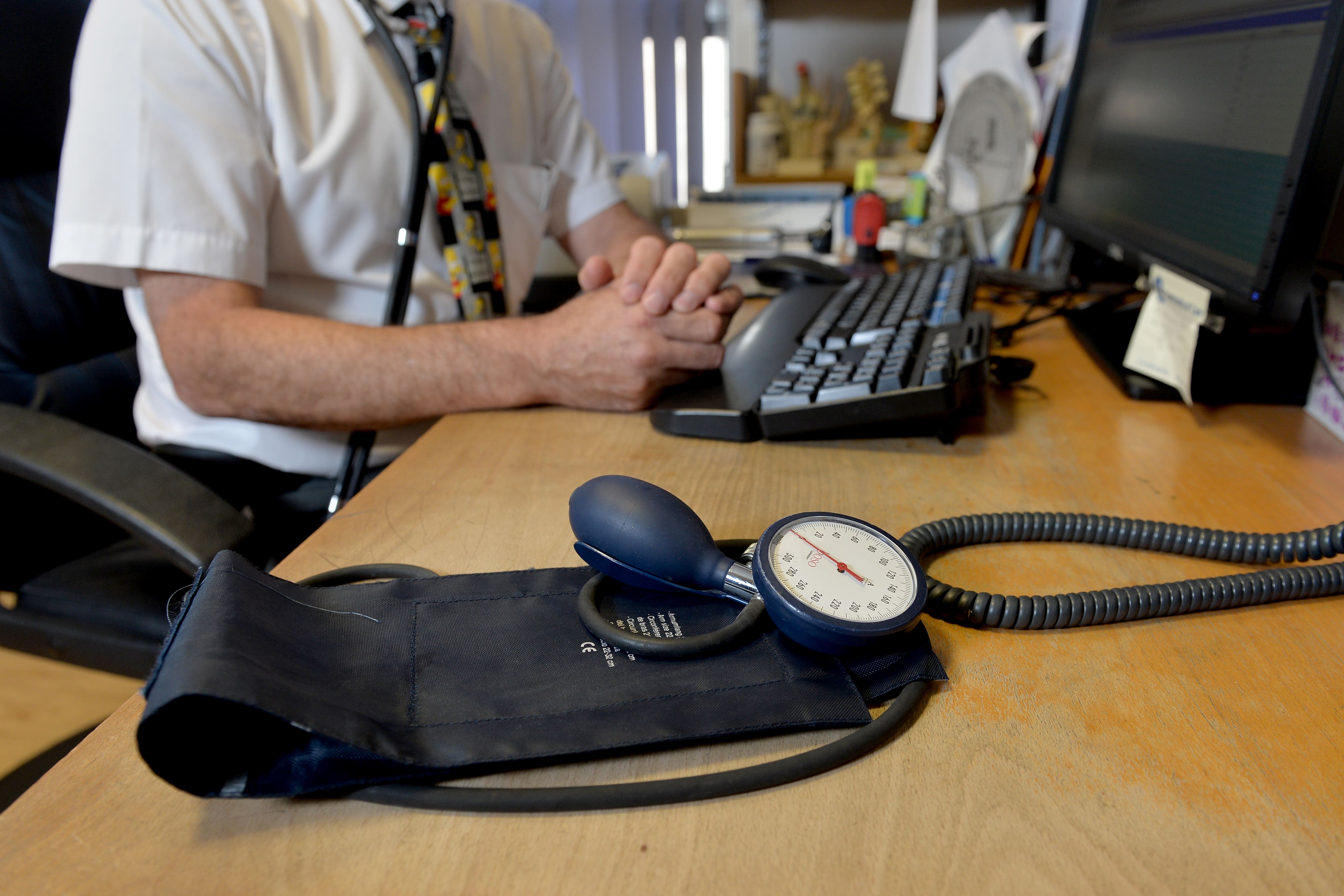Support gender-questioning children by wearing pronoun badges, GPs told
The suggestions were made to delegates in a session at the Royal College of GPs (RCGP) annual conference in Liverpool.
GPs should consider wearing name tags stating their pronouns to support children questioning their gender, it has been suggested.
Surgeries could also display the progress pride flag, both in practices and online, as well as putting up posters signposting teenage patients to transgender services.
The suggestions were made to delegates in a session at the Royal College of GPs (RCGP) annual conference in Liverpool on Thursday.
Just identifying and acknowledging somebody with the pronouns that they choose to identify with is really, really important to a lot of trans people
The session explored ways in which GPs could approach consultations with young people questioning their gender.
Speaking about pronouns, Jason Wood-Ives, a trans healthcare co-ordinator at the charity Humankind, told delegates: “Just identifying and acknowledging somebody with the pronouns that they choose to identify with is really, really important to a lot of trans people.”
He added: “We’ve come up with a few ideas of things that would make trans people and trans adolescents more comfortable within the GP surgeries, such as confidentiality statements, posters – just putting the progress flag up somewhere so that they see that progress flag and know that it’s a safe space.
“Use of pronouns, but this is more for staff. Put them on your name badges. Showing that you have, and you are, displaying your pronouns, shows people that you understand how important pronouns are.
“New patient registration forms, make your website friendly-looking. Again, put the progress flag on there.
“Think about your campaign, cervical screening, breast screenings, prostate exams, those are all really, really important things that trans people need to know about as well and actively avoid.
Patients should also ask administration staff to change their gender on their records, Mr Wood-Ives suggested.
“You don’t need to have a GRC (gender recognition certificate) or anything to change your gender identity within the NHS, it’s as simple as asking the admin,” he added.
There is a rise in young people who are gender questioning, who are within our caseloads and are our patients
“A lot of GP surgeries don’t understand how easy that is to do. So looking that up and seeing the policies on that will make things a lot easier.”
Mr Wood-Ives also stressed that so-called “deadnaming” – referring to a transgender or non-binary person by their birth name or a name they used before transitioning – can be “really offensive”.
“It’s so easy within the healthcare service to dead name a trans individual. If somebody comes to you and says ‘I feel like I’m trans’, asking the question ‘do you have a name that you prefer to go by?’ and then addressing them with that name will make all the difference in their mental health, in their dysphoria.
“But purposely going on and calling them their birth name when you know that they have another name, it can be really offensive, and it could put somebody’s back up.”
Treating patients with gender dysphoria and trans health issues is not part of the GP curriculum or GP specialty training, and many medics are not experienced, according to Dr Stephanie Lamb, GP partner and clinical director at The Well Centre.
“There is a rise in young people who are gender questioning, who are within our caseloads and are our patients,” she told delegates.
“And many of us are not experienced in treating and managing people with gender dysphoria and gender questioning.
It is down to individual practices to implement their own policies on how to ensure equality, inclusivity and diversity
“It can be a really difficult consultation, that initial consultation, if you’re really not sure what to do, if you’ve got no experience of having been involved in this field.”
Fiona McAnena, director of campaigns at Sex Matters, a human rights charity that campaigns for clarity on sex in law, policy and language, said: “The last thing vulnerable children and their parents need when seeking evidence-based treatment is to have badges, posters and flags that represent a harmful, anti-science agenda pushed in their faces.
“The link between transactivist lobbying and the quack medicine of gender affirmation is known, so what will it take for medical bodies to return to their principle of ‘first do no harm’?
“Distressed children do need better care. That means following the recommendations of the Cass Review and not affirming the false premise that they may be born in the wrong body.”
Professor Kamila Hawthorne, chair of the RCGP, said: “The care of transgender and gender questioning people is a complex area of medicine and the RCGP has members with widely diverging views on the issue.
“GPs will always aim to do the best for their patients, treating every conversation with sensitivity to ensure they get the care they need.
“It is down to individual practices to implement their own policies on how to ensure equality, inclusivity and diversity.”

Bookmark popover
Removed from bookmarks